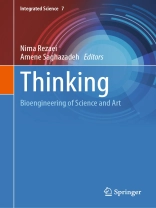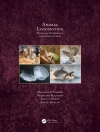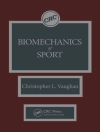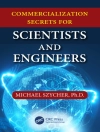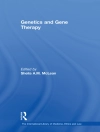The “THINKING: Bioengineering of Science and Art” is to discuss about philosophical aspects of thinking at the context of Science and Art. External representations provide evidence that the fundamental process of thinking exists in both animal subjects and humans. However, the diversity and complexity of thinking in humans is astonishing because humans have been permitted to integrate scientific accounts into their accounts and create excellent illustrations for the effects of this integration. The book necessarily begins with the origins of human thinking and human thinking into self and others, body, and life. Multiple factors tend to modify the pattern of thinking. They all will come into play by this book that brings thinking into different disciplines: humanities, natural sciences, social sciences, formal sciences, and applied sciences. The thinking demands full processing of information, and therefore, the book considers the economy of thinking as well. The book thoroughly intends to explore thinking beyond the boundaries. Specifically, several chapters are devoted to discipline this exploration either by artistic thinking alone or by art and mathematics-aided engineering of complexities. In this manner, the book models variations on thinking at the individual and systems levels and accumulates a list of solutions, each good for specific scenarios and maximal outcomes.
Inhoudsopgave
Introduction on THINKING: Bioengineering of Science and Art.- Thinking as A Philosophical, Theological and Psychological Phenomenon.- How to Think about Human-Animal Differences in Thinking: Two Cases of Marginal Analogy in the Philosophical Explication of Animal Cognition.- Homo Pictor’: A Philosophical Enquiry into the Origins of Human Thinking.- Idealism and Science of Life: An Intersection between Philosophy and Biology.- Embodied Creativity and Symbolic Variation in The Evolution of Life.- Within the Box: Captives of our Own Mind.- The Dialectic of Mind and Matter in The Trialectic Approach: A New Path of The Cognition Process.- Efforts Deployed in the Penetration of “Thought”.- Pseudo-Thinking and Real Thinking.- Three Paradoxes of Thought: Thought Power Measured.- A New Philosophical Paradigm of Thinking for Particular Sciences: Physics, Cognitive Science, and Biology.- Indicators of Variation in Thinking Actions and Reactions.- Multidimensional Thinking: Economizing Thinking and Maximizing Outcomes.- How You Know What I Know That She Said About You: Theory of Mind, Intentionality and the Evolutionary Roots of Artistic Practice.- A Philosophical Perspective on the Bioengineering of Art: Ethical Shifts in Mimesis.- Thinking Through the Body: Art and Philosophy in Dialogue.- Mechanism vs. Organism: A Loosely Kantian Perspective and its Implications for Bioengineering.- New Media Art: The Liminal Space Between Thinking and Perceiving.- Towards a New Science of Interfaces: Bridging Art and Engineering.- Art as Metacognitive Tool for Critical Thinking in Engineering.- Dimensions of Thinking, Reflecting, and Knowing through Design.- Thinking Through Sound: Music Listening as A Model for Enhanced Cognition.- Poetic Thinking and the Constitution of Our World: On Language and Reality.- Thinking as the Invention of New Aspects within Language-Games.- Literature as a Genealogy of the Social Sciences Thought.- How Rational Thought Is Conceived in Christian Doctrine: The Case of Saint Thomas Aquinas.- The Interest of Religion on Ethical Thought in Science.- Thinking, Politics, and the Evolutionary Process of Societies.- Information Processing in Reasoning in the Environment of Forbidden Sentences.- The impact of economic science on human thinking.- Generations of Systems Thinking: Models for Future Learning.- Systems Thinking and Action for An Entrepreneurial Journey Towards the House of Lab Science.-
Systems Approach for Modeling Multifactorial Human Interactions that Affect Ecological and Environmental Systems.- Cradle to Cradle and Cradle to Grave: Discussing the Case of Eco-Coffins.- THINKING 2050: Bioengineering of Science and Art.
